It may sound absurd, but this is completely true.
Have you ever heard of using donkeys to protect livestock? Many people may be entirely unaware of this, but in reality, there are large packs of wolves in various parts of the United States that can chase away and even kill large sheepdogs. However, there is something quite strange: despite the aggressive nature of wolves, when they encounter donkeys, they suddenly become “gentle and benign.” So what secret “power” do donkeys possess to achieve this?
Throughout history, from ancient times to the present, the most prominent role of donkeys has been to grind grain. Additionally, they have been used as pack animals to carry loads. While people often refer to donkeys as foolish creatures, they actually possess a hidden skill: they can scare off wolves and protect sheep.
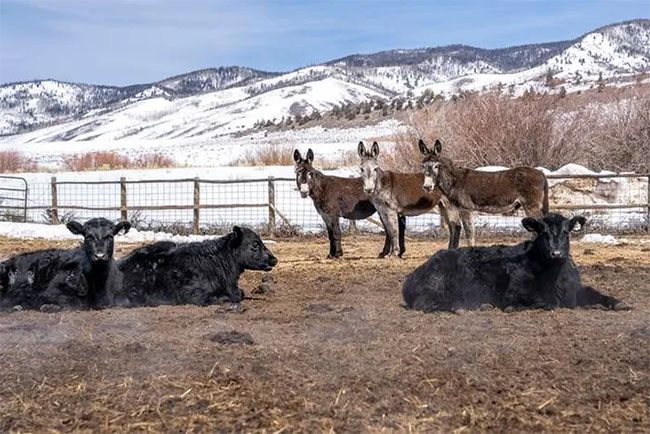
Donkeys are not aggressive by nature, but they can deliver deadly kicks if they feel threatened. Sheep and goat farmers often keep one or two donkeys with their livestock because a donkey can and will kill grazing or surrounding wolves.
In the last century, Texas became famous around the world for cattle ranching; however, it faced a significant problem that left farmers frustrated: the threat posed by wolf packs. According to farmers, situations where livestock were attacked by wolves occurred frequently, and even the guard dogs on the farm were killed by wolves. The most terrifying part was that wolves even dared to attack bulls.
Consequently, many farmers decided to use guns to protect their livestock. However, handguns could only injure wolves and were not an effective means of protection. As a result, many farms were forced to declare bankruptcy due to the threat of wolf packs.
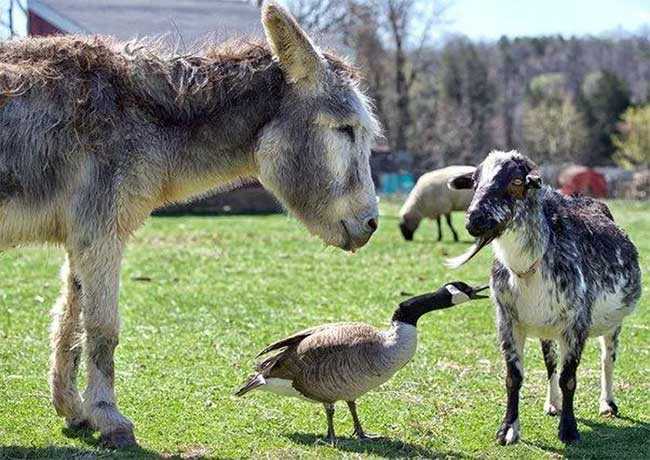
Typically, a donkey will confront wolves and drive them away from the pasture. If the wolves do not retreat quickly, the donkeys will attack them with kicks. A single kick can injure, kill, or at least deter the predator.
Meanwhile, farms that managed to stay afloat decided to use another method: electric fences. Initially, this approach was somewhat effective, but the maintenance costs were high, and given the intelligence of wolves, this method eventually became ineffective.
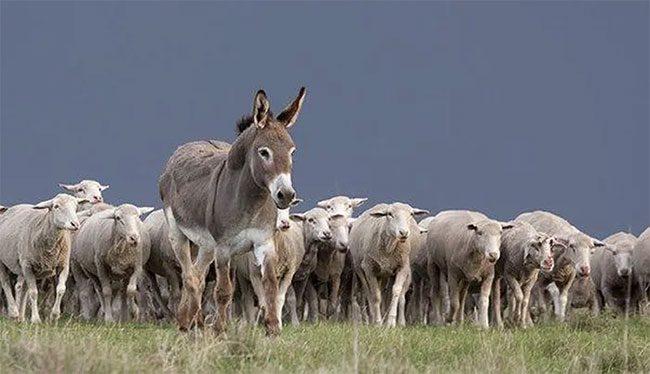
Donkeys dislike stray dogs, grazing wolves, foxes, and other members of the canine family. Therefore, when a donkey sees any animal from this family, it will lose control and immediately charge at and attack them.
Later, the farmers convened to devise an effective strategy against the wolf packs, and some livestock owners suggested trying to raise donkeys in the pasture. At first, many thought this was a joke since wolves could easily kill sheep, sheepdogs, and even bulls, while donkeys, being herbivores, would likely become easy prey for the wolves.

Upon discovering wolves, donkeys will charge to attack with a series of kicks.
In fact, donkeys do not possess the tremendous strength of tigers, leopards, or lions; however, they harbor a strong animosity towards animals like dogs, foxes, and wolves. Therefore, when they see a wolf, they do not hesitate to charge, and the damage inflicted by their hooves is significant.
The donkey, scientifically known as Equus africanus asinus, is a mammal belonging to the horse family, which is part of the odd-toed ungulate order. The ancestors of donkeys were domesticated around 5,000 years ago.
Donkeys vary in size and weight depending on their breed. An adult donkey typically stands about 1.43 meters tall and weighs around 200 kilograms. They can live for 25 to 40 years.
With their small and cute appearance, donkeys are often not the first choice we think of when it comes to protecting livestock. But don’t be fooled by them. Donkeys can become excellent “guardians” for livestock, thanks to their four outstanding advantages.
First, when a donkey senses a threat, it emits a loud bray to alert the livestock and frighten off predators like wolves.
Second, the damage inflicted by their hooves is considerable. When they detect a wolf, they will approach and attack it without fear. Donkeys will kick and stomp on intruders.
Third, donkeys have strong vision and can see very well at night. They can easily spot the movement of wolves even in dark and challenging conditions.
Fourth, donkeys form close relationships with the animals in their pen, and this bond strengthens the more time they spend together. When donkeys are naturally bonded with livestock, they will be by their side most of the time, and in the event of any attack, donkeys will stand up to protect them.
Because of these reasons, folklore has regarded donkeys as the sworn enemies of wolves, prompting sheep farms to try raising a few donkeys as a precaution against wolves. Indeed, this method has proven effective, which is why today we can see many livestock farms in the United States commonly raising donkeys to protect their sheep instead of dogs.
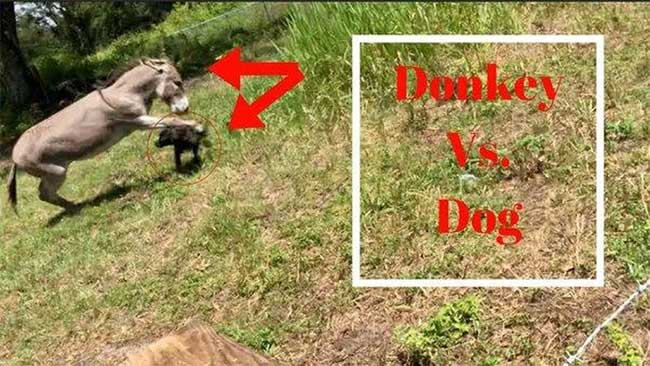
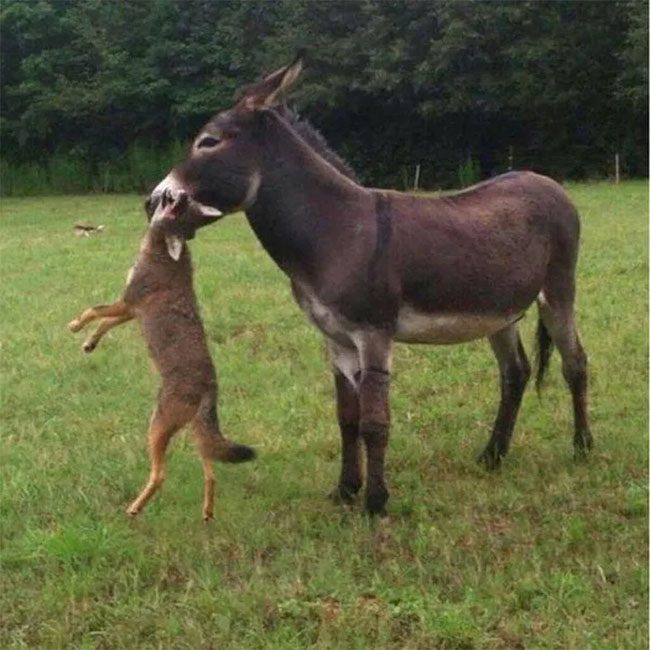
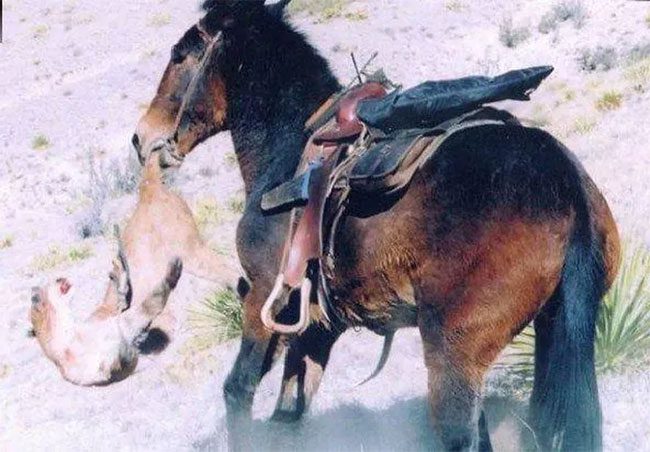
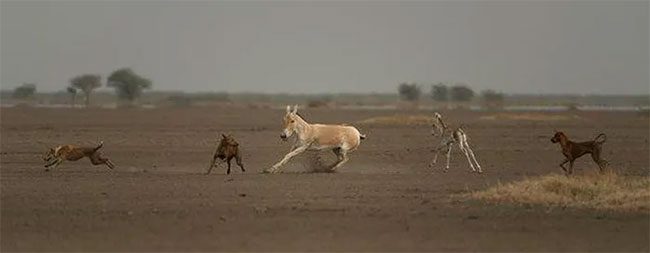
Donkeys form close relationships with the animals in their pen, and this bond strengthens the more time they spend together. When donkeys are naturally bonded with livestock, they will stay by their side most of the time, and in the event of any attack, donkeys will stand up to protect them. Donkeys have strong vision and can see very well at night. Whenever a donkey senses a threat, it will bray loudly to alert the shepherd and the animals in the pen.


















































